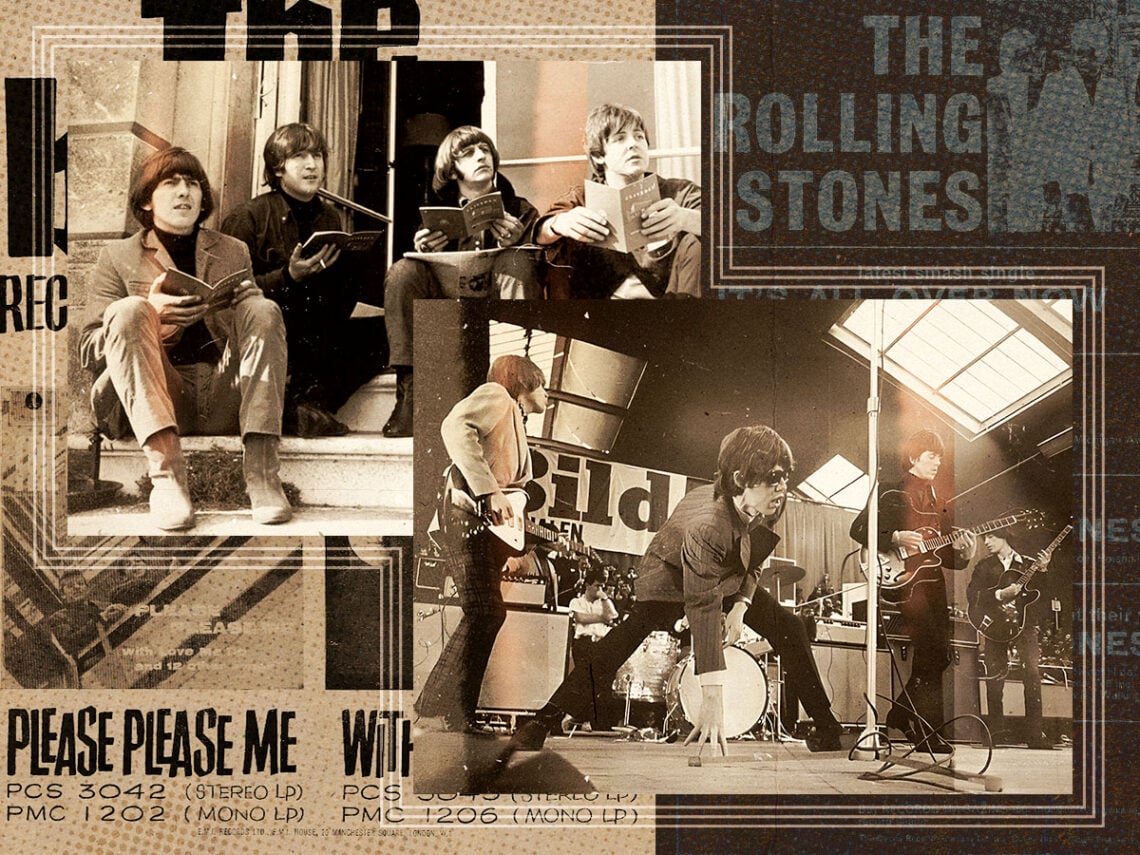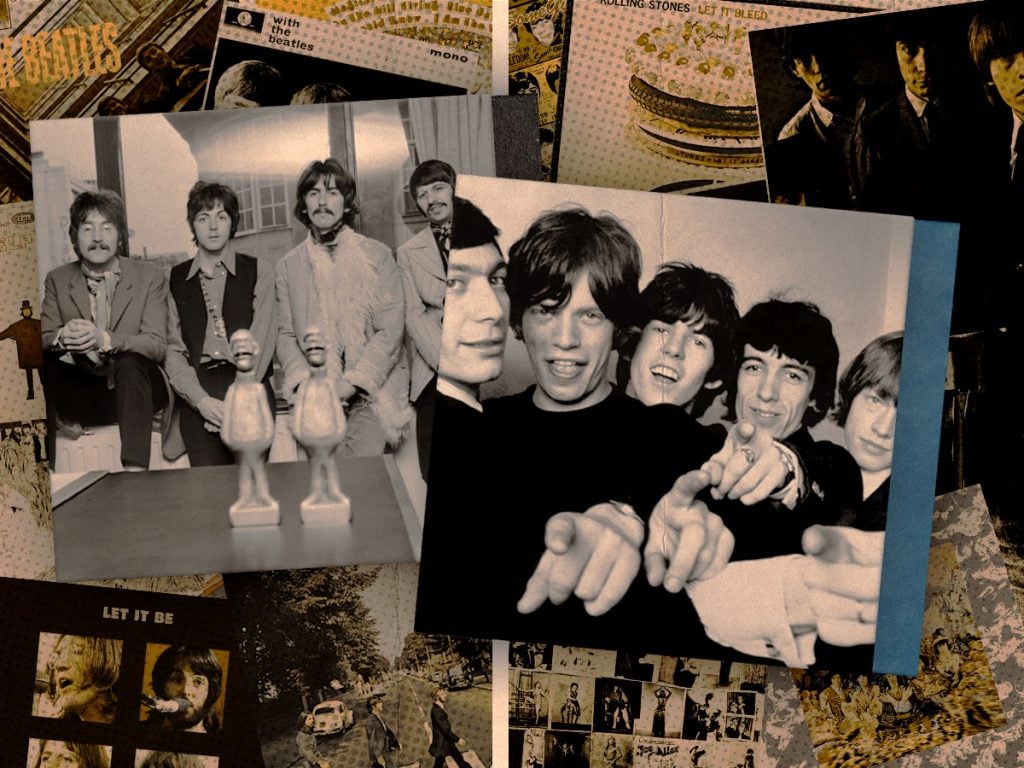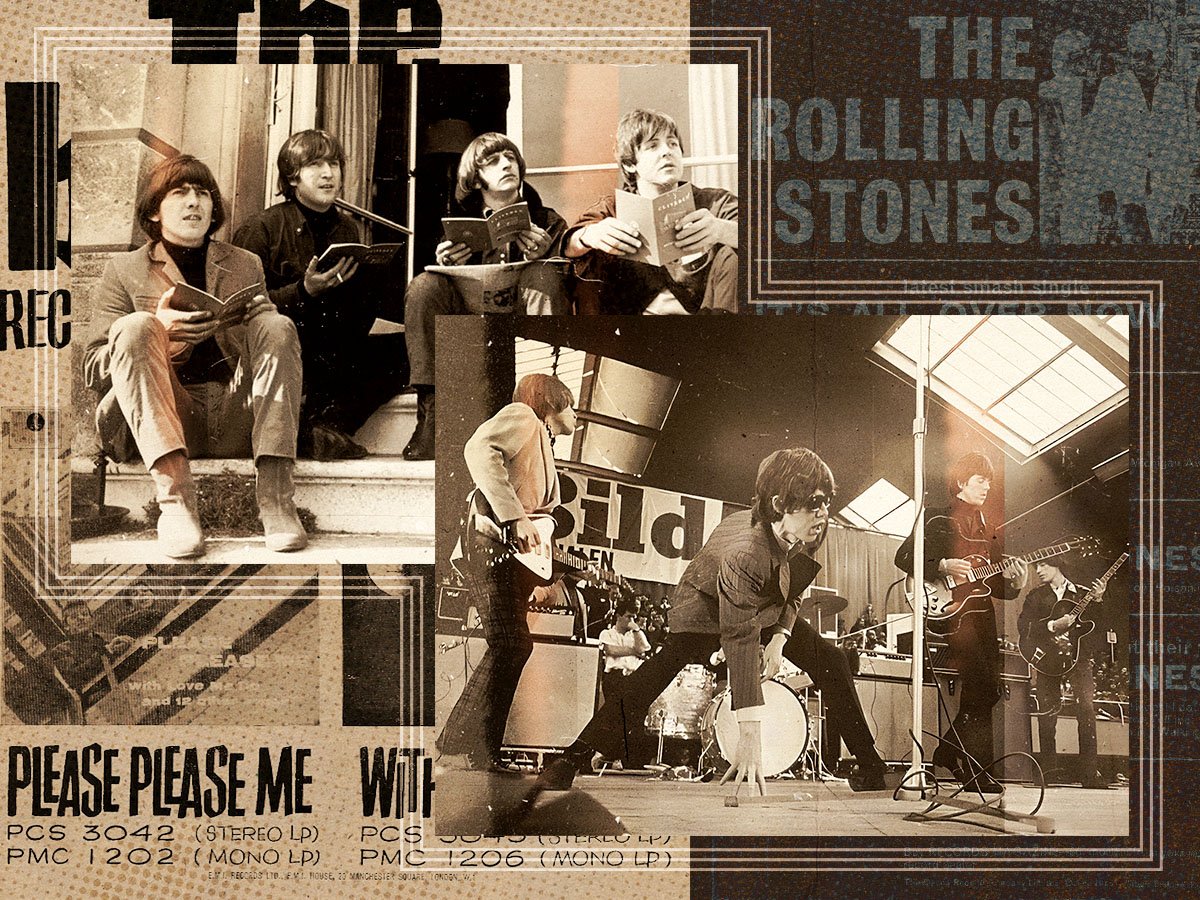
(Credits: Far Out / Ingen Uppgift / Alamy / Bradford Timeline)
Mon 16 June 2025 16:30, UK
In September 1963, The Rolling Stones were only a few months past the release of their debut single, a cover of Chuck Berry’s ‘Come On’, and hadn’t yet put out a full-length album. But under the direction of their new 19-year-old manager Andrew Loog Oldham, the Stones were already taking shape. He steered them away from the clean-cut look that dominated the pop scene, where bands wore matching suits and moved in sync. Instead, Oldham leaned into their art-school backgrounds and wanted them to feel rougher, more unpredictable. Something to speak to the part of youth culture that didn’t want to behave.
By contrast, the Beatles, only a year removed from their leather-jacket clad brawler days in Hamburg, had now adopted a less intimidating, button-up symmetry by the autumn of 1963, following the sage advice of their own baby-faced manager Brian Epstein. The Fab Four were more than a few steps ahead of the Stones at this point when it came to record sales and popularity in the UK, but when their paths crossed on a rare shared bill at London’s Royal Albert Hall on September 15th, 1963, it was clear that some friendly battle lines were being drawn on Britain’s pop landscape. Soon, everybody would have to pick their side.
As far as the British press was concerned, however, the ‘Great Pop Prom’, as this Albert Hall concert was called, was a Beatlemania gathering, first and foremost. Mick and Keith weren’t yet household names, but every girl in the country had already selected their preference among John, Paul, George and Ringo.
“It was the siege of the Beatle-crushers,” the Daily Mirror reported the next day in its recap of the Great Pop Prom. “6,000 screaming teenagers intent on crushing just four Beatles. Never had the Royal Albert Hall seen scenes quite like it. Even for Britain’s newly-elected top vocal group, the Beatles, it was bewildering.”
 (Credits: Far Out / Bent Rej / Alamy / The Beatles / The Rolling Stones)
(Credits: Far Out / Bent Rej / Alamy / The Beatles / The Rolling Stones)
The Great Pop Prom had been organised by several teen-oriented magazines—Valentine, Marilyn, and Roxy—as a fund-raising event for the Printers’ Pension Corporation. The Beatles were the big headliners, with the Daily Mirror reporting on the other participants in the following order: Shane Fenton, the Brook Brothers, the Fentones, the Lorne Gibson Trio, Arthur Greenslade and the Gee-Men, the Viscounts, the Rolling Stones, Kenny Lynch, Clinton Ford, Susan Maughan and the Vernons Girls.
If you think it looks strange seeing the Rolling Stones getting eighth billing on a line-up sheet, just imagine the stories Arthur Greenslade and his Gee-Men got to tell their grandkids in the decades that followed.
One person at the Great Pop Prom who already recognised the Stones’ emerging greatness was none other than Paul McCartney himself, who later shared his memories of the show with Mojo magazine. “Standing up on those steps behind the Albert Hall in our new gear, the smart trousers, the rolled collar,” he recalled. “Up there with The Rolling Stones, we were thinking ‘This is it – London! The Albert Hall!’ We felt like gods.”
The Stones, as Keith Richards recalls in the same Mojo retrospective, got “an amazing reception” from the Albert Hall audience, but it didn’t change the fact that the band were still gigging every night at small clubs to build up their reputation and move up the pecking order. It’s not even clear if the Stones actually stayed to watch all of the Beatles’ headlining set.
“We couldn’t hang around because we had to head back down the A3 to Richmond to play the Crawdaddy Club that night,” Richards said.
Sadly, the Great Pop Prom was one of only a few occasions where the UK’s two most famous rock bands occupied the same stage; an exciting moment in time right at the beginning of a new era in pop music.
Related Topics
The Far Out Music Newsletter
All the latest music news from the independant voice of culture.
Straight to your inbox.
